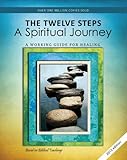Dual Recovery Anonymous is an independent, nonprofessional, twelve step, self-help fellowship organization for people with a dual diagnosis. Our goal is to help men and women who experience a dual illness. We are chemically dependent (alcoholic / addict) and we are also affected by an emotional or psychiatric illness. Both illnesses affect us in all areas of our lives; physically, psychologically, socially, and spiritually.
The many terms of dual disorders
The term dual diagnosis is often used interchangeably with the terms co-morbidity, co-occurring illnesses, concurrent disorders, comorbid disorders, co-occurring disorder, dual disorder, and, double trouble. Professional literature has used a confusing array of terms and acronyms to describe co-occurring disorders or a dual diagnosis.
Many problems
Individuals who experience a dual diagnosis often face a wide range of psychosocial issues and may experience multiple interacting illnesses (more than two). The term "co-occurring disorders" is becoming a common term used to refer to dual diagnosis, or co-occurring substance abuse disorders and psychiatric or emotional illnesses.
Dual Recovery Anonymous defines "dual diagnosis" as meaning that an individual has two separate but very interrelated diagnoses:
- A psychiatric diagnosis
- A substance abuse diagnosis which may include both drugs and alcohol
An individual is in dual recovery when they are actively following a program that focuses on their recovery needs for both their chemical dependency and their psychiatric illness.
Our Second Tradition states that: "D.R.A. has two requirements for membership;
- a desire to stop using alcohol and other intoxicating drugs, and
- a desire to manage our emotional or psychiatric illness in a healthy and constructive way."
More at; Dual Recovery Anonymous
See also;
 Codependent No More: How to Stop Controlling Others and Start Caring for Yourself
Codependent No More: How to Stop Controlling Others and Start Caring for Yourself Alcohol & Other Drug Recovery
Alcohol & Other Drug Recovery


